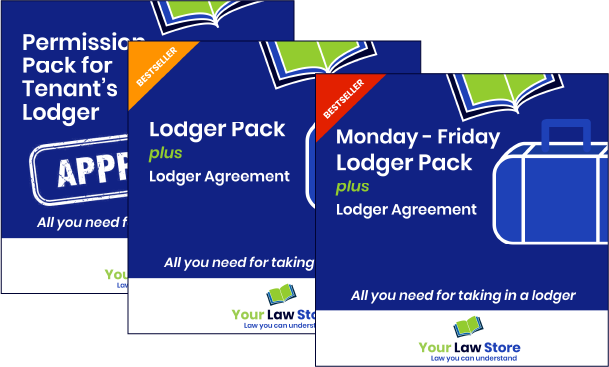How do you draft adverts and deal with enquiries?
This section deals with the practical aspect of advertising for and finding a lodger. However first, a warning.
Safety first
Before you launch into drafting out your advert and inviting strangers into your home, you need to be aware that criminals often look out for lodger adverts.
Visiting a property as a prospective lodger gives criminals an opportunity to ‘case the joint’ by looking out for valuables to steal and any security weaknesses which would help them gain access.
They will also be hoping to find out from you whether there are any times when the property is empty, and other information which could help them.
Don’t give it to them! It is better to unjustly suspect genuine people at this stage, than to carelessly give away information which could put your property at risk. You need to be super careful.
Adverts
Following on from this, you should never put the address of your property in your advert. Nor, if you live alone, should you let anyone applying, know this, until it is necessary (for example when you decide to accept them).
An advert such as “Elderly widow living alone at 2 Acacia Avenue seeks lodger …” is asking for trouble.
You also need to take into account how much space and words you have to play with. You can say a lot more, for example, in a postcard in a shop window, than you can in a classified advert where you are paying for every word. With paid adverts, it is normal to use abbreviations to save space.
The essential information to provide is:
- Your approximate location eg the area or road name (never the address)
- The rent. Say ‘incl’ if bills are included and ‘excl’ if not
- Any special features which will make the room seem more attractive, such as an ensuite bathroom, private parking, or broadband
- How anyone interested can contact you. This is usually a telephone number but can be a box office address or an email address.
- You need to be careful, to preserve your anonymity at this stage. For example, it may be worth taking out a HotMail or other free email address, if your normal address gives away too much information about you (e.g. the name of your business).
There are often special days for adverts for accommodation in local papers. The sales staff will tell you when this is. Don’t let them sell you anything unnecessary, however – remember that they generally work on commission!
If you are putting your advert on a card, make sure it is very clear and legible. Remember, handwriting is often hard to read.
Don’t put too much on the card. A few lines giving the basic information (perhaps a list with bullet points) with lots of white space will stand out more and be easier to read.
Make sure that all the information (particularly the rent and the telephone number) are correct, as it is easy to make a mistake.
Note also that adverts should not be discriminatory and seek to exclude anyone on the basis of their colour, sex, nationality or religion. It is also illegal to discriminate against people on benefit in your advert.
First contact
Generally, it is best to ask people to contact you by telephone, as the telephone call will give you an opportunity to assess the person before seeing them.
Take a telephone number from the caller and then dial 1471 afterwards. Be wary if it is a different number – there may be a good explanation, then again, there may not…
Never give out any personal information, in particular, never say that you live alone
If the caller is obscene, just put the phone down and dial 1471. If this gives their telephone number, consider telling the police and your telephone company. If they start to ring persistently, tell them anyway.
If there is anything about the caller’s voice that you do not like, just say that the room is no longer available.
Unless the caller’s voice gives you the creeps and you decide against them on the spot (although don’t be too judgmental, they might just have a cold), you will need to take the following information from them:
- Their name
- Their address
- Contact details (including telephone and email address)
- Whether they are working, on benefit, or a student
- Whether they can pay a deposit
- Why they need accommodation
- Whether they can give references
Depending on your circumstances, you may want to add other things, such as whether they smoke or have a car and need parking.
Have a list prepared (or if you let rooms out often, have a form you can fill in – such as the form provided with our Lodger Kit), so you can write the answers down while you are on the phone.
If they sound all right, either arrange for them to visit the property there and then, or check you have their telephone number written down correctly and say you will ring them back.
Note that you will need to do a ‘right to rent’ check at their interview, so make sure you ask them to bring their original passport with them (or other relevant documentation) – and maybe a copy if you do not have a copier or scanner.
Your Law Store
We have a lot of helpful forms, including a telephone notes form, and extensive guidance notes in our New Lodger pack. Now might be a good time to get it.
 Lodger packs
Lodger packs
All the forms and letters you need for finding, checking and signing up your lodger can be found in our Lodger packs.
Important note
This guide ONLY deals with lodger agreements where you are renting a room to a lodger in your own home.
If you require information about tenancies with resident landlords and Welsh occupation contracts, you need the Landlord Law site.
